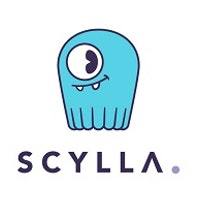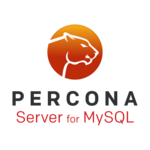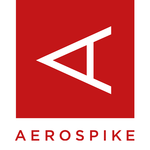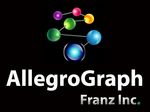What Is NoSQL Database Platform?
NoSQL Database Platform, which stands for Not Only SQL Database Platform, is a type of database that differs from standard relational databases in terms of data storage and querying methods. Traditional databases organize data in tables with rows and columns, but NoSQL databases take a more flexible and dynamic approach, allowing for the storage and retrieval of vast amounts of unstructured or semi-structured data.
One of the most important advantages of a NoSQL Database Platform is its capacity to manage huge datasets at scale. This is accomplished through the use of distributed database systems, in which data is shared over numerous servers and accessed concurrently by multiple users. This enables excellent performance and scalability, making NoSQL databases a popular choice for modern applications that handle massive amounts of data.
Another defining element of NoSQL databases is their data structure, or lack thereof. Unlike relational databases, which require a preset data schema, NoSQL databases are more flexible, making data modeling easier and faster. This means that new data types can be added or modified without requiring significant database changes, making NoSQL databases more flexible and adaptive to changing data requirements.
There are several types of NoSQL databases available, each built for a distinct use case. Some examples are document databases, key-value stores, column-oriented databases, and graph databases. Each type has distinct capabilities and advantages, so buyers must carefully examine their data requirements and select the best NoSQL Database Platform to meet their specific demands.
Overall, a NoSQL Database Platform provides a more modern and flexible approach to data storage and administration, making it an invaluable tool for enterprises that need to handle enormous datasets, adapt to changing data requirements, and achieve high performance and scalability. With the ongoing expansion of data-driven companies and the increasing complexity of current applications, a NoSQL Database Platform is an essential tool for meeting the needs of the digital age.
What Are The Recent Trends In NoSQL Database Platform?
The NoSQL database platform has grown significantly in recent years, with enterprises of all sizes and industries embracing this modern and adaptable database system. The NoSQL database platform has evolved to satisfy the increasing demand for enormous amounts of data storage and processing.
In this buyer's guide, we will go over recent advancements in the NoSQL database platform, allowing you to make an informed decision for your firm.
1. Cloud-Based NoSQL Databases: One of the most significant changes in the NoSQL database platform is the migration to cloud-based solutions. With the rise of cloud computing, businesses are shifting from on-premise databases to scalable and adaptable cloud-based solutions provided by top NoSQL suppliers.
2. Big Data Analytics: NoSQL databases are renowned for their capacity to manage massive amounts of unstructured data. As organizations continue to collect and analyze massive volumes of data, the demand for NoSQL databases that can efficiently handle and analyze this data grows.
3. Multi-Model Databases: Another trend in the NoSQL database platform is the rise of multi-model databases. These databases enable numerous data models, including key-value, document, graph, and columnar, in a single system. This gives enterprises greater flexibility in managing various types of data without the need for several databases.
4. Real-Time Data Processing: With the rise of the Internet of Things (IoT) and the demand for real-time data processing, NoSQL databases are becoming the preferred choice for enterprises. They have great performance and low latency, making them excellent for processing real-time data streams.
5. Security And Compliance: As with any database, security and compliance are major priorities. NoSQL databases are continually improving to meet these problems, and they currently include capabilities like data encryption, access control, and auditing to protect sensitive data.
6. Integration With Traditional Databases: For some applications, many organizations continue to use classic relational databases. To meet these needs, NoSQL databases are increasingly providing improved integration possibilities, allowing enterprises to take a hybrid approach to database administration.
Benefits Of Using NoSQL Database Platform
NoSQL stands for "Not Only SQL," and as the name implies, it provides alternative techniques for data storage and retrieval as compared to standard SQL databases. NoSQL databases have grown in popularity in recent years because of their ability to process enormous amounts of unstructured data rapidly and efficiently.
There are various advantages to utilizing a NoSQL database platform, which we shall go over in this buyers guide.
1. Scalability: NoSQL databases are built to manage massive amounts of data while still performing well. This is especially useful for organizations that handle a large volume of data, such as e-commerce websites, social media platforms, and online gaming websites.
2. Flexibility: Because NoSQL databases are schema-less, you do not need to determine the structure of your data prior to saving it. This allows developers to change the data structure without affecting the database's performance. This is especially valuable in agile development contexts, where data requirements can change often.
3. Improved Performance: NoSQL databases are designed for speed, making them suitable for managing real-time data. They use techniques including as caching, sharding, and replication to boost performance and ensure that queries are completed rapidly.
4. Cost-Effective: NoSQL databases are often open-source, which means they are free to use and require no licensing fees. This makes them an affordable choice for firms, particularly small and medium-sized enterprises that may lack the means to invest in costly database software.
5. High Availability: NoSQL databases have a distributed architecture, which means data is shared across numerous servers. This ensures high availability since even if one server fails, data can still be retrieved from the other servers, reducing downtime.
6. Support For Unstructured Data: Traditional SQL databases store data in rows and columns, which makes it difficult to store unstructured data such as photos, videos, and social media feeds. NoSQL databases, on the other hand, can manage both semi-structured and unstructured data, making them an excellent alternative for firms that deal with a wide range of data types.
Important Factors To Consider While Purchasing NoSQL Database Platform?
When considering to buy a NoSQL database platform, there are several crucial elements to consider before making a decision.
These elements will have an impact on not only the database's performance and usefulness, but also the overall success of your business operations.
1. Data Model Flexibility: One of the primary motivations for using a NoSQL database is its ability to accommodate a wide range of data types and structures, offering greater flexibility than traditional relational databases. When selecting a NoSQL platform, it is critical to assess its data model and if it can meet your specific data requirements, both in terms of scalability and query capabilities.
2. Scalability & Performance: NoSQL databases are built to manage huge and fast rising datasets, hence scalability is critical. Consider the platform's capacity to handle growing workloads and data quantities, as well as its performance under high load. It is also critical to evaluate the platform's redundancy and failover capabilities to ensure maximum availability and lowest downtime.
3. Consistency And Availability: NoSQL databases provide various levels of consistency, ranging from high consistency to eventual consistency. Strong consistency ensures that all nodes receive the same data at the same time, whereas eventual consistency allows for some data latency between nodes. Depending on your application requirements, you should select a database with the suitable consistency level. Consider the platform's availability options, such as replication and sharding, to assure ongoing operations while reducing the risk of data loss.
4. Cost: NoSQL databases are available in a variety of configurations and pricing methods, ranging from open-source to commercial. It is critical to assess the platform's cost and any associated licensing fees, as well as the cost of database maintenance and expansion. Consider the overall cost of ownership, including maintenance, training, and support, to select a platform that fits your budget.
5. Support And Training: As with any software purchase, assess the degree of support and training provided by the NoSQL database platform. Look for providers who give extensive documentation, training tools, and a strong support system to enable a seamless deployment and continuous database maintenance.
6. Security & Compliance: Data security is a primary priority for businesses, so it is critical to select a NoSQL database platform with strong security features. Consider the platform's encryption capabilities, access controls, and compliance certifications to safeguard the security and privacy of your information.
7. Integration With Existing Systems: If you already use other databases or apps, you should assess the NoSQL platform's compatibility and integration possibilities with your current systems. Look for alternatives that provide simple connectivity via APIs or connectors, as this will help to streamline your operations and data administration.
What Are The Key Features To Look For In NoSQL Database Platform?
NoSQL (Not Only SQL) databases have grown in popularity over the last few years due to their high scalability, flexibility, and ease of use. They are built to manage massive amounts of data and a variety of data kinds, making them a popular choice for modern applications.
If you're thinking about investing in a NoSQL database platform, here are some critical aspects to examine so you can make an informed selection.
1. Data Model Flexibility: One of the most significant advantages of NoSQL databases is their ability to manage both organized and unstructured data. This versatility in data formats enables seamless interaction with a variety of applications and data sources. To respond to changing business needs, choose a NoSQL database platform that supports numerous data models, such as document, key-value, or graph.
2. Scalability: Scalability is an important issue to consider when selecting a NoSQL database platform. These databases are intended to handle huge volumes of data and may be scaled horizontally by adding additional servers to the cluster. Look for a platform that supports automatic sharding, load balancing, and easy node addition to ensure seamless scalability as your data and user base develop.
3. High Performance: NoSQL databases are known for their fast performance and minimal latency. They are designed to handle huge datasets at high throughput rates. When comparing platforms, consider read/write speeds, response times, and the ability to handle concurrent activities to ensure peak performance.
4. Distributed Architecture: NoSQL databases employ a distributed system architecture, with data scattered across numerous servers. This enables improved fault tolerance, data availability, and load balancing. To ensure data reliability and resilience, choose a platform with a strong distributed architecture.
5. Data Security: Data security is a major problem for every organization, and NoSQL databases are no different. Look for a platform that provides robust authentication and authorization procedures, encryption of data at rest and in transit, and audit logs to track data access. You should also consider data backup and disaster recovery capabilities to preserve your data in the event of unanticipated occurrences.
6. Ease Of Use: NoSQL databases are noted for their simplicity and use, however some platforms may have a steeper learning curve than others. Choose a user-friendly platform with a well-documented API and comprehensive developer tools to ensure a smooth and efficient integration process.
7. Support And Integration: Finally, think about the support and integration options provided by the NoSQL database platform. A dependable support team can assist with any technical concerns, while a strong integration capacity allows you to simply link your database to other systems and tools. Look for systems that include detailed documentation, tutorials, and a strong community of support.
Why Do Businesses Need NoSQL Database Platform?
Businesses increasingly generate and manage massive volumes of data, ranging from customer information to sales transactions, and traditional relational databases may be unable to handle this volume and variety of data efficiently. Here's where NoSQL database platforms come in. NoSQL, or "Not Only SQL," databases are intended for storing and managing unstructured, semi-structured, and highly dynamic data. This implies they may handle data in a variety of formats, including text, photos, videos, and social media interactions, while avoiding the strict structure required by traditional relational databases.
Here are five reasons that organizations require NoSQL database platforms:
1. Flexibility And Scalability: NoSQL database technologies provide a flexible data format, allowing organizations to adapt and modify their data structure as needed. This flexibility also makes it easy to scale up or down based on data volume and business requirements.
2. High Performance: Relational databases store and retrieve data in an organized manner, which can lead to slower performance when dealing with large and complicated datasets. NoSQL databases employ a distributed architecture, allowing them to process massive amounts of data quickly, making them excellent for real-time applications and high-traffic websites.
3. Cost-Effective: NoSQL databases can often run on low-cost commodity hardware, making them a more affordable option than traditional databases, which require expensive servers and software licensing. This makes them available to companies of all sizes, from start-ups to major corporations.
4. Seamless Integration: Many NoSQL database platforms integrate seamlessly with other technologies, including cloud computing and big data tools. This allows organizations to design and deploy modern apps that can swiftly analyze and process enormous amounts of data.
5. Improved Data Analytics: NoSQL databases also give businesses with strong data analytics capabilities. Businesses that can store and manage huge and diverse data sets can acquire important insights and make data-driven decisions to improve their operations, improve customer experiences, and drive growth.
Which Industries Can Benefit The Most From NoSQL Database Platform?
NoSQL database solutions have grown in popularity in recent years due to their capacity to manage enormous amounts of data, provide great scalability and flexibility, and enable real-time data processing. These capabilities make them ideal for sectors that deal with huge and complicated datasets and require real-time data access and analysis.
In this buyer's guide, we'll look at which industries can gain the most from NoSQL database solutions.
1. E-commerce: The e-commerce industry handles massive amounts of data, such as product information, customer details, transaction history, and website activity. NoSQL databases can easily handle this data, allowing for speedy retrieval and analysis. Furthermore, NoSQL databases' flexible design enables for simple upgrades and alterations to meet the constantly changing product and customer data in the e-commerce market.
2. Finance & Banking: Where data security and real-time processing are critical, NoSQL databases are the best option. They can manage complicated financial data, such as market trends, client transactions, and risk assessments, with exceptional performance and dependability. NoSQL databases also have data security mechanisms that ensure sensitive financial information is secured.
3. Healthcare: The healthcare industry generates a large amount of data, such as patient records, medical histories, and diagnostic results. Traditional relational databases may struggle to handle this amount of data, while NoSQL databases thrive in managing and analyzing it. Furthermore, with the growing use of electronic health records and the requirement for real-time analysis, NoSQL databases have shown to be a great asset in the healthcare business.
4. Advertising And Marketing: Data is used extensively in the advertising and marketing business to target and personalize commercials, as well as to measure campaign performance. NoSQL databases enable the storing, retrieval, and analysis of massive amounts of customer data, delivering invaluable insights to marketers. The scalability of NoSQL databases ensures that data may be quickly increased as the company grows.
5. Gaming: Online gaming generates huge amounts of real-time data, such as player interactions, game statistics, and in-game events. NoSQL databases provide the high performance and scalability needed to handle this data, delivering a smooth gaming experience for players.
6. Social Media: Social media sites generate massive amounts of data, such as user profiles, postings, comments, and likes. NoSQL databases are well-suited to handling this dynamic and unstructured data, allowing social media services to give real-time updates and recommendations to users.
Conclusion
After conducting extensive study and analysis of the numerous NoSQL database platforms on the market, it is evident that each one has its own set of strengths and capabilities. Ultimately, the ideal NoSQL database platform for your business will be determined by your individual demands and objectives. If your company works with vast amounts of unstructured data and needs high scalability and flexibility, a document-oriented database such as MongoDB or Couchbase may be the ideal option.
For complicated data structures and relationships, a graph database such as Neo4j or OrientDB may be more appropriate. On the other hand, if your data is mostly organized and you need ACID compliance, a key-value store like Redis or RavenDB would be the best option. When choosing a NoSQL database platform, consider the vendor's level of support and documentation, as well as the community and ecosystem that surrounds the platform.
Look for a platform with a strong and active community, regular upgrades and releases, and detailed documentation to guarantee a smooth and fast setup and maintenance process. Consider each platform's pricing and license structure, as well as any additional payments for support or add-on functionality. It is critical to pick a platform that matches your budget and gives value for your money.
Finally, NoSQL databases provide a number of data management and storage options, appealing to a wide range of data kinds and applications. It is critical to properly assess your business demands and explore the available possibilities before selecting the finest NoSQL database platform to support your data requirements and propel your organization forward.



















